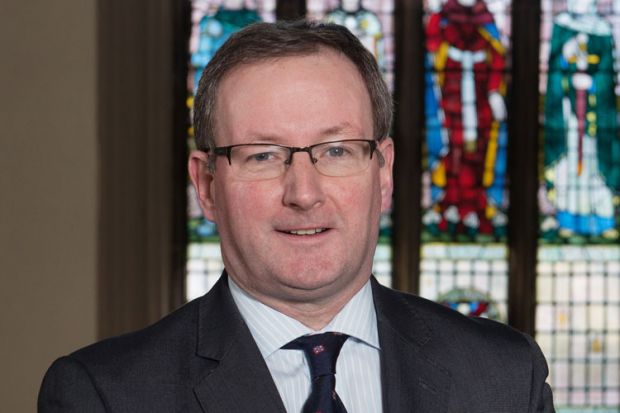Queen’s University Belfast is considering reforms that have been called “the most radical changes in the history of the university”, in apparent response to what its vice-chancellor has characterised as its lowly position in the Russell Group.
The plans moot “bigger rewards for fewer people” in terms of professorial pay, and have also prompted fears that power will be concentrated in the hands of a small group of senior managers.
Patrick Johnston took over as vice-chancellor in March of this year after serving as dean of the Faculty of Medicine, Dentistry and Biomedical Sciences.
A presentation he made to staff during his first month in his new post said Queen’s was “currently 19th position in the Russell Group [which has 24 members]”, although the presentation does not explain the ranking criteria. The university is “underperforming” in terms of research income and postgraduate and international student recruitment, and had “limited international recognition”, it adds.
A series of separate presentations released to staff at the end of May, seen by Times Higher Education, outline shifts that would be “the most radical changes in the history of the university”, said Mike Larkin, president of the Queen’s University and College Union branch.
The university’s three faculties will each be led by a new pro vice-chancellor (additional to the university’s current three pro vice-chancellors), the “Vision” for Queen’s reveals.
Budgets will be controlled by the new managers rather than heads of school as at present. Targets will be “set and managed at faculty level”.
Professors’ salaries would be reviewed individually every year rather than every three years, with the possibility of “bigger rewards for fewer people”, according to the presentations.
Probation periods of up to six years are also discussed, up from the current norm of three years.
Greater use of peer evaluation of teaching is mooted and the need to “reward excellence/pro-active management of poor performance” is also stressed.
The proposals are set to go to the university’s Senate on 24 June.
Professor Larkin said this was a “very short timescale” that meant the changes might be agreed by Senate “too hastily” and “without genuine consultation”.
A spokesman for Queen’s said: “The work in developing the Vision will be informed by extensive consultation with all stakeholders and this process is ongoing. A further progress report will come to the next meeting of the university’s governing body.”
Register to continue
Why register?
- Registration is free and only takes a moment
- Once registered, you can read 3 articles a month
- Sign up for our newsletter
Subscribe
Or subscribe for unlimited access to:
- Unlimited access to news, views, insights & reviews
- Digital editions
- Digital access to THE’s university and college rankings analysis
Already registered or a current subscriber? Login





